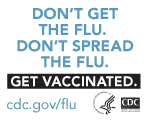About CDC
Hot Links
Conferences & Events
Outbreak: Plagues that changed HistorySeptember 27 – January 30, 2009
Organized by the Global Health Odyssey Museum; come see Byrn Barnard’s images of the symptoms and paths of the world’s deadliest diseases – and how the epidemics they spawned have changed history forever.
CDC Organization COTPER
» Official Mission Statements/Organizational Charts
The Coordinating Office for Terrorism Preparedness & Emergency Response (COTPER)
The Coordinating Office for Terrorism Preparedness & Emergency Response (COTPER) helps the nation prepare for and respond to urgent public health threats by providing strategic direction, coordination, and support for all of CDC’s terrorism preparedness and emergency response activities. COTPER’s mission is to safeguard health and save lives by providing a flexible and robust platform for public health emergency response (proposed).
For more information on public health emergency response, please visit the CDC’s Emergency Preparedness & Response website.
COTPER Divisions
- The Division of Emergency Operations (DEO) is responsible for overall coordination of CDC’s preparedness, assessment, response, recovery, and evaluation prior to and during public health emergencies. DEO is also responsible for the CDC Director´s Emergency Operations Center, which maintains situational awareness of potential health threats 24/7/365 and is the centralized location for event management when activated.
- The Division of Select Agents and Toxins (DSAT) through the Select Agent Program regulates the possession, use, and transfer of biological agents and toxins (select agents) that have the potential to pose a severe threat to public health and safety. This program is designed to ensure compliance with the select agent regulations by providing guidance and evaluating and inspecting registered entities.
- The Division of State and Local Readiness (DSLR) administers the Public Health Emergency Preparedness (PHEP) Cooperative Agreement, which supports preparedness nationwide in state, local, tribal, and territorial public health departments. As of 2007, the cooperative agreement has provided more than $5 billion to these public health departments to upgrade their ability to effectively respond to the public health consequences of all hazards, including infectious diseases, natural disasters, and biological, chemical, nuclear, and radiological events. The cooperative agreement currently funds 62 grantees including all 50 states, eight U.S. territories and freely associated states, and four localities.
DSLR also administers a cooperative agreement for the Centers for Public Health Preparedness (CPHP) program. The CPHP program is a national network of colleges and universities that collaborates with state and local public health departments and other community partners to provide preparedness education and training resources to the public health workforce, healthcare providers, students, and others based on community need. - The Division of Strategic National Stockpile (DSNS) has the mission to deliver critical medical assets to the site of a national emergency. DSNS manages the Strategic National Stockpile (SNS), a national repository of antibiotics, chemical antidotes, antitoxins, life-support medications, and medical supplies that can be used to supplement state and local resources during a large-scale public health emergency.
Page last reviewed: March 28, 2008
Page last updated: March 28, 2008
Content source: Office of Enterprise Communication
Notice: Links to non-governmental sites do not necessarily represent the views of the CDC.
Page last updated: March 28, 2008
Content source: Office of Enterprise Communication
Notice: Links to non-governmental sites do not necessarily represent the views of the CDC.

